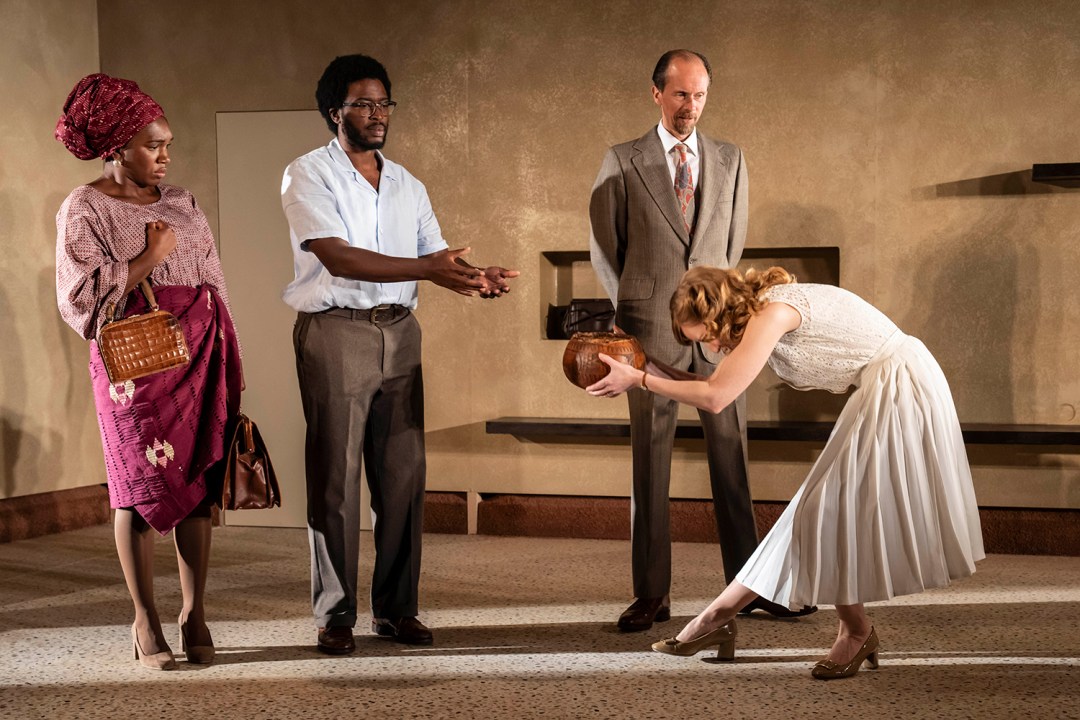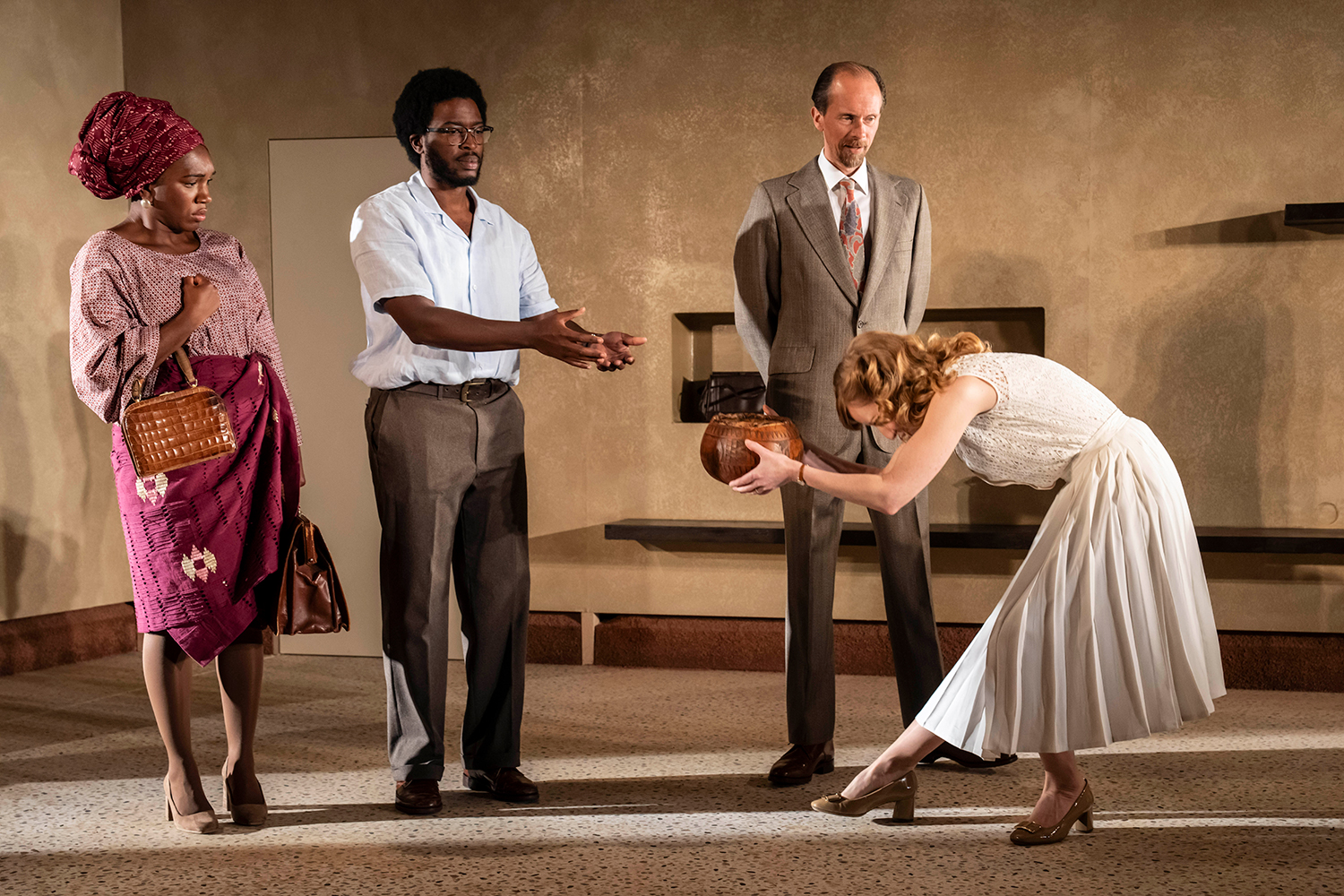Beneatha’s Place, set in the 1950s, follows a black couple who encounter racial prejudice when they move to a predominately white suburb. The location is Nigeria but it might as well be the USA because most of the characters, both black and white, are American. (The Young Vic has strong links with America, and a transfer to Broadway may be under discussion.) The script by Kwame Kwei-Armah is inspired by the British sitcom Love Thy Neighbour, which aired five decades ago. This misunderstood show was pretty progressive for the 1970s, and it examined the conflict between two thick white bigots living next door to an intelligent and sophisticated couple from the Caribbean.
To see a play about racism in America that treats Asia as if it doesn’t exist is staggering
The format of this play is more or less identical but the dialogue is malignant rather than frivolous. The white Americans are idiotically patronising and they assume that no person of colour can use a light switch or run a bath. The black couple don’t bother to hide their anti-white prejudice and they treat the Caucasians with open rudeness and contempt. It’s uncomfortable to watch but there’s plenty to enjoy if you’re a racist. The script includes a puzzling element. The black couple are excited by Africa’s forthcoming liberation and they play recordings of political anthems to accompany their love-making. The idea that patriotic music is an aphrodisiac belongs to the lexicon of fascist propaganda.
Act Two copies a device from the hilarious race-hate comedy Clybourne Park, which Kwei-Armah seems to have studied as closely as Love Thy Neighbour. Seven decades have passed and the couple’s sitting-room has become an office where American professors meet to discuss the future of critical race theory. It’s an interesting debate. Rather dry, though. One lecturer suggests that the battle against racism has merely entrenched it permanently. Good point. What’s astonishing is that the characters make no reference to Asian-American students who consistently outperform both whites and blacks in college admissions tests but who are scandalously underrepresented in academia because they campaign less vigorously than their black counterparts. To see a play about racism in America that treats Asia as if it doesn’t exist is staggering. Quite an embarrassment for the Young Vic. Where was Kwei-Armah during the unconscious bias training? Unconscious probably.
Another race-hate play, Duck, has reached the Arcola. This 85-minute monologue is delivered by an angry pipsqueak, Ismail, who his classmates call Smiley or Smelly. He loves cricket but he’s a feeble player and he embarrasses himself at Lord’s during an exhibition match between his school team and the old boys. After being bowled out for a duck he blunders in the field by dropping a catch. ‘Howzat,’ he cries speculatively. The umpire, Mr Eagles, declines the appeal and poor little Ismail assumes that the decision was racist. He kicks the stumps over and storms out of the MCC taking the match ball with him to ruin the game for everyone else.
As he quick-marches towards the family mansion in St John’s Wood, he’s arrested on suspicion of terrorism because the year happens to be 2005 and the capital is on high alert after an Islamist bombing. A saviour arrives to liberate Smiley from the cops and it’s none other than the ‘racist’ umpire Mr Eagles. So he’s not a bigot, he’s a hero. In a monologue, Ismail reveals that the real source of his chippy resentment is his father, an Indian immigrant, who imported his mistrust of other communities from the subcontinent where racial and religious divisions are far deeper than in Britain. He warned Ismail that the UK would never accept him and the naive dimwit believed this advice despite all the evidence to the contrary. If the English hate Ismail, why do they let him represent his school at the home of cricket?
These race-hate plays share important features. The writers have to delve into the past to find instances of active racism but they ignore the obvious conclusion that racism is in decline. Their income depends on bigotry so they have to exaggerate it or just make it up. A derangement has overtaken these playwrights. They consider themselves infallible and evidently believe that their pronouncements about race must be correct and virtuous even if they’re demonstrably false and malicious.








Comments